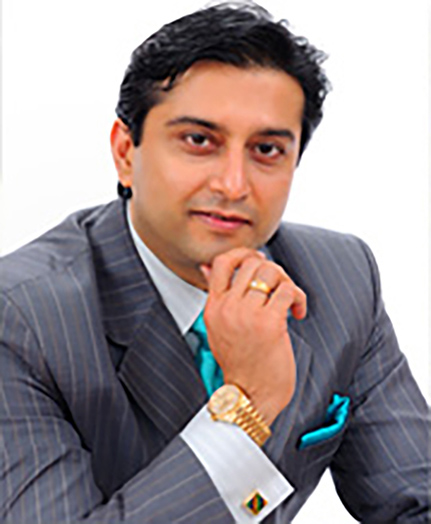
LIFESTYLE MEDICINE: Part IV: The importance of SLEEP

Do you get about 7-8 hours of sleep every night? No? Well, join the 50 million people in USA who cannot get a decent night’s sleep. One of the essential ingredients of maintaining good health is to get adequate sleep. This is the so-called, “Life’s forgotten third,” as one researcher calls it. After a healthy diet and regular exercise, sleep is the most important ingredient for your well-being. Unfortunately, insomnia has reached the status of an epidemic in the frantic pace of our modern life.
So, how much sleep is needed for good health and proper functioning? All adults need about seven to nine hours of sleep every night. Sadly, many of us are not getting it. Sleep deprivation has become a major public health problem because of its serious adverse effects on the body. In addition to feeling well and energetic during daytime, getting a good night’s sleep can reduce certain major diseases like hypertension, heart disease and possibly stroke as well. There is also a connection between sleeplessness and obesity. Sleep deficiency is also linked to many other chronic health problems like kidney disease, diabetes and depression. Sleep deficiency can lead to a higher chance of injury in adults, teens and children. And we all know, driving while sleep-deprived has the same or worse impact as driving with a high blood alcohol level — high chance for accidents. Even those smart, driven, people who manage to get by with only five hours of sleep will do much better if they can get at least seven hours of sleep. Athletes always perform much better with good sleep.
There is one special situation that everybody needs to be aware of – a condition called “Obstructive Sleep Apnea” that affects almost 18 million people! These people often snore loudly, stop breathing for a few seconds and partially awaken and then get back to sleep. This disturbs their sleep during the course of the night. In addition, they are at high risk for heart disease, stroke, Type 2 diabetes and cancer as well. They need to consult a ‘sleep specialist’, undergo sleep studies and have to use a CPAP machine, a compact air pump, to breathe at night while asleep. There is yet another problem called ‘parasomnia’ or sleep walking that needs to be properly treated by a specialist.
In regard to treatment for insomnia, the first step is to develop proper sleep hygiene. This means going to sleep at the same time every night and avoiding short naps during day time except maybe for some of the older folks. Avoid stimulants like tea and coffee within 12 hours before bedtime. Needless to say, no smoking nor use of any nicotine products. Avoid big meals and beverages at least within two hours before going to bed. Stay active during day time, doing your regular exercises, etc., but avoid any major activity before bed time. Limit alcohol intake. Also, finish all your computer work 2-3 hours before bedtime since the blue light from computer can interfere with sleep. Check with your doctor if any of the medications you are taking can cause sleep disturbances. Another issue is pain that affects your sleep. You don’t have to put up with any pains and you must do everything, including drug therapy, to alleviate any ache you have.
Now, about drugs for sleep. Melatonin is a natural sleep hormone produced in the body; so, melatonin supplements are helpful to promote sleep and are safe for short-term use. Magnesium may be useful too; it relaxes your brain and increases sleepiness. There are some herbal remedies such as valerian that may be helpful.
Perhaps, the best treatment for sleep problems is ‘Cognitive Behavioral Therapy,’ according to a Mayo Clinic Study. This “helps you to find out which thoughts and behaviors cause sleep problems or make them worse. And you learn how to replace these thoughts and behaviors with habits that support sound sleep. Unlike sleeping pills, CBT helps you overcome the causes of your sleep problems.” Sleeping pills would be the last resort. There are many over-the-counter medications that you can try or get the doctor to prescribe some.
Always remember, by securing a pleasant sleep, you will feel well and can live energetically and young.
To be continued …
M.P. Ravindra Nathan, M.D., is a cardiologist and Emeritus Editor of AAPI Journal. For further reading, “Second Chance - A Sister’s Act of Love” by Dr. Nathan from Outskirts Press, can be found at www.amazon.com
EYE CARE
THAT’S IT? AM, I DONE?

In this column, I will share an important category of patients who reach out to us from all over the world after repeatedly being told that nothing can be done for them.
These are not patients who are called “not a candidate” because of thin cornea, high astigmatism or dry eyes who their Lasik surgeons could not help, or patients who have complex cataracts, Keratoconus or previous surgeries such as radial keratotomy, etc., and are labeled as impossible. In past columns in this publication, I have shared with you that there is no such thing as “not a candidate” and all patients with the above-mentioned conditions can be corrected, and in most cases, to life without glasses or contact lenses.
I'm referring to patients who may have retinal or optic nerve conditions like diabetic retinopathy, glaucoma or macular degeneration, or any such condition where their vision is permanently limited.
These patients most usually get filtered through cookie-cutter screenings into “not a candidate” categories, accept the label and stay with limited vision for the rest of their lives.
Certainly, the conditions of retina and glaucoma are irreversible, in most cases, and therefore should be vigilantly evaluated at regular intervals to make sure that the disease doesn't worsen. At the same time, there are ongoing newer therapies to improve damage (example, intravitreal injections for certain age-related macular degenerations), which could result in stabilizing or mildly improving vision, according to individual severity status. Eye doctors who relegate these patients to no further improvement in vision and hand them over to a lifetime of dependence on glasses and contact lenses are doing anything less than an excellent job of patient care. But I personally feel that these are the very patients who deserve an extremely strong fight from eye surgeons to get them every little drop of vision possible in their already limited-potential eyes.
It is important to understand that the glaucoma, retina or macular condition needs to be stable and provenly steady over time. Then one can determine what final vision potential the patient may have and then proceed with any optical element in the eye which could yield itself to surgery and bring forth any more vision possible.
Think about this as an analogy, for example, as the film (retina) of the camera is permanently damaged, so no matter what you do, the image created will be defective and limited in quantity and quality, including field of vision.
But for the same reason, once you determine that that film of the camera is damaged but at least stable, the rest of the optical elements of the eyes must be tackled by refractive surgeries like Lasik (or no blade, LaZrPlastique®), lens-based techniques like cataract surgery (custom-designed LenzOplastique®) or cornea-based techniques (Corneoplastique®). Any possible drops of vision could offer a life without glasses/lenses and thus freedom, which to a normal patient may not be significant, but to this particular patient means everything between a fully dependent to an independent lifestyle.
Several technologies today can allow the eye doctor to determine your vision potential despite a limiting eye condition; so, please encourage the surgeon to look for the same.
For example, despite having glaucoma, you may also suffer from existing astigmatism or near sightedness, maybe far sightedness or need reading glasses and, of course, age-related cataracts. Take advantage of modern technologies and proceed with options for vision improvement being fully aware that the outcome will be limited based on your ocular disease, compared to a normal eye.
Additionally, you might have dry eyes that are bothering and impacting your lifestyle, or red- looking eyes from pterygium or scars on your cornea. All can be corrected to at least decrease the burden of an uncomfortable and yet visually limited eye.